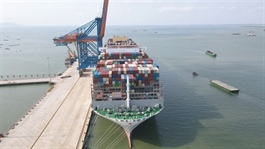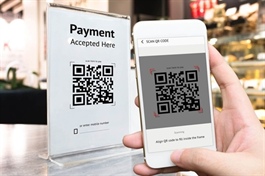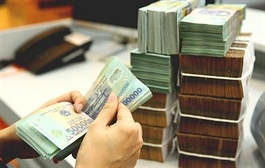Lenders making waves to take on new loan prospects
Lenders making waves to take on new loan prospects
Some Vietnamese banks are increasingly courting foreign investors and exploring favourable loan opportunities from international organisations.

VPBank last week announced an adjustment, raising its maximum foreign ownership limit (FOL) to 30 per cent of charter capital. This move heralds the final stages of its comprehensive issuance of over 1.19 billion shares exclusively for Sumimoto Mitsui Banking Corp (SMBC).
Valued at $1.5 billion, this transaction represents the most significant foreign investment in Vietnamese banking history.
The lender said that the official adjustment time will help ensure implementation of the private placement plan for foreign investors.
As of September 5, VPBank’s foreign room was 16 per cent, while the available ratio is 3.35 per cent. After the adjustment, the FOL at the bank will raise to the maximum level.
VPBank is not the only entity making waves in this country. Earlier this month, Ho Chi Minh City-headquartered bank OCB successfully secured a five-year loan valued at $55 million from DEG, under the umbrella of KfW Development Bank.
This funding is envisaged to primarily assist OCB’s small- and medium-sized enterprise (SME) clientele. At least half of the total will be earmarked for SMEs helmed by women, underscoring an ongoing effort to boost female participation in business activities. The broader aim is to enhance productivity and living standards for Vietnamese families.
“SMEs are central to OCB’s clientele,” an OCB executive said. “We have introduced a slew of measures, including reduced interest rates and tax incentives, to support them. The additional backing from DEG undoubtedly bolsters OCB’s position, streamlining procedures for SMEs, especially those led by women, to access bank capital.”
This agreement follows another $100 million loan from the International Finance Corporation (IFC).
Meanwhile, SHB in May finalised the transfer of half of SHBFinance’s charter capital to its Thai partner, Krungsri. The bank earmarked around $156 million for the acquisition, Krungsri had previously revealed.
While SHB’s recent financial statements indicate an unexpected inflow of over VND675 billion ($28.48 million) from capital contribution and share purchases, a comparison with the same period last year, which indicated just over VND2 billion ($84,400), hints at the sheer enormity of the transaction.
The following month, the IFC also inked a medium- and long-term loan agreement to strengthen VIB’s financial resources for credit expansion activities including retail home loans, home renovation products, and affordable mortgages.
The corporation also signed a credit agreement worth around $120 million in March this year with another Vietnamese lender, SHB.
Meanwhile, there have been hints of broader horizons for SHB in terms of deeper engagements with foreign financial conglomerates.
Sources for Reuters indicated that SHB is currently negotiating a 20 per cent stake sale to investors from overseas, with entities from the likes of South Korea and Japan reportedly showing a keen interest. Current evaluations place the bank’s worth ar around $2-2.2 billion.
On another front, SeABank plans to issue 94.6 million shares, approximately 4.6 per cent of circulating shares, exclusively for professional securities investors. The main investor in this issuance is expected to be Norfund, the Norwegian Investment Fund dedicated to supporting developing nations.
The transaction could yield SeABank an estimated $50-150 million.
However, a raft of various challenges remain for some, and state-owned commercial banks such as BIDV have long-term plans to issue shares to foreign investors.
BIDV chairman Phan Duc Tu emphasised their continued dedication to this cause. “This year, we persist in accomplishing this mission. We have a few prospective investors, but it’s premature to disclose any details. We’ll strive to achieve this goal in 2023,” Tu said.
Vietcombank chairman Pham Quang Dung also highlighted its plans for a private issuance of 6.5 per cent of charter capital for foreign investors. “This is in the advisory selection phase, with the issuance expected in the next year or so,” he said.

























